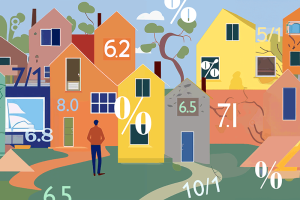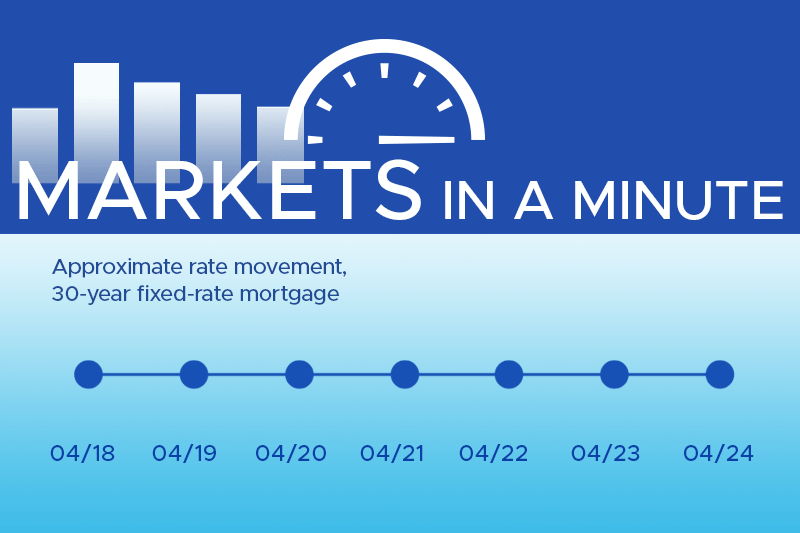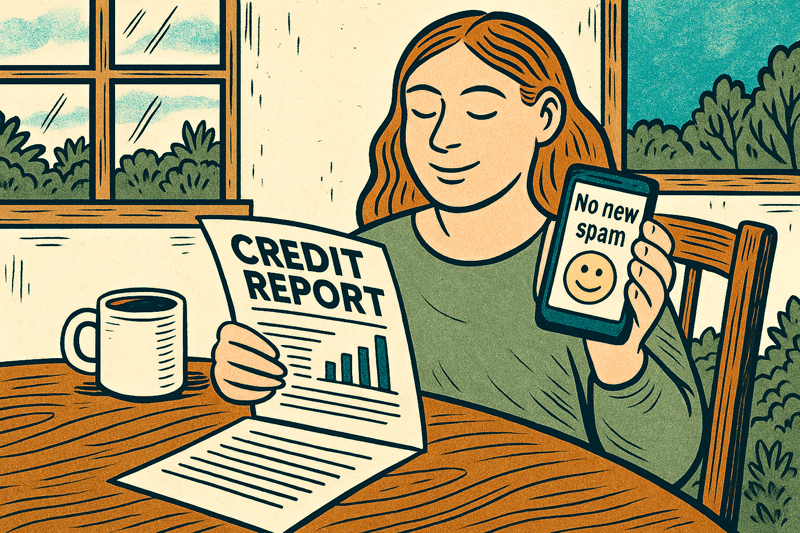At Thompson Kane, we stay ahead of shifting market trends so you don’t have to.…
Understanding Mortgage Rate Trends: What Homebuyers Need to Know
For those looking to purchase a home, making sense of today’s mortgage rate trends and the forces that move them is key to smart financial planning. As the housing market shifts late in 2023, we’ll break down what’s impacting rates and what buyers should consider. Use this short guide as an introduction. Contact your Thompson Kane lending expert to discuss the current mortgage landscape and start down a path to home ownership that will help you improve and sustain good financial health.
Economy and Mortgage Rate Trends: Behind the Numbers:
Mortgage rates correlate closely with the economy. They are significantly influenced by Federal Reserve adjustments to federal funds interest rates, which set what banks charge each other for short-term loans. Job growth, inflation changes, GDP – these indicators signal economic health. So do interest rate hikes meant to control prices, which directly shape mortgage cost. Take your education on interest rates and the economy to the next level by reading an article like this one on CNET, which is loaded with links to related articles that will expand your knowledge even further.
Locked (Fixed-rate) or Adjustable Rate Mortgages(ARM): Weighing Stability vs Flexibility:
Homebuyers have numerous options in either fixed or adjustable-rate mortgage terms. Fixed rates mean consistent, predictable monthly payments that will not change unless you refinance. ARMs fluctuate after a set period, starting lower but risking increases. It depends on one’s desire for stability versus flexibility as well as how markets are expected to shift in coming years. ARMs are typically labeled with a designation like “5/1”. The first number represents how long the loan will be locked at the initial rate. The second number reflects how frequently the ARM will be adjusted to match the current mortgage rate. In the case of a 5/1 ARM, the loan will be fixed for the first 5 years, and then will be adjusted once a year thereafter.
Credit Impact: Higher Scores, Better Terms:
Individual credit-worthiness greatly sways what rates lenders offer. Top scores frequently mean below-market interest rates. Weaker credit leads to steeper pricing. Improving your score before applying sets the stage for better terms.
Lower Risk, Better Rates: Down Payment Role:
Down payment amount and the resulting loan-to-value ratio (LTV) impact mortgage rates too. A substantial down payment may signify a lower risk for the lender and often invites more favorable rates. Focusing on saving for a 20% down payment may open the door to the best interest rates. However, it’s important to think about your big picture financially. As you work on nailing down your target down payment, keep in mind the helpful points presented by the Consumer Financial Protection Bureau in this article. It includes a lot of helpful links for a deep dive into this topic.
Staying Agile: Timing Is Key as you Navigate Today’s Mortgage Rate Trends:
Mortgage rates respond swiftly to financial news and market forces. Following rate trends and world events provides insight on when to commit. Your Thompson Kane lending advisor can help in seeking out windows where locking in rates pays off in lower costs.
In conclusion, unraveling the complexity of today’s mortgage rates involves understanding all the factors we’ve covered. From economic indicators to personal finances and market dynamics, homebuyers are encouraged to stay informed, keep an eye on rates, and taking advantage of the resources your Thompson Kane mortgage expert has to offer. This strategic approach lays a smoother path through the complex mortgage landscape, securing the most advantageous mortgage for your homeownership journey.





